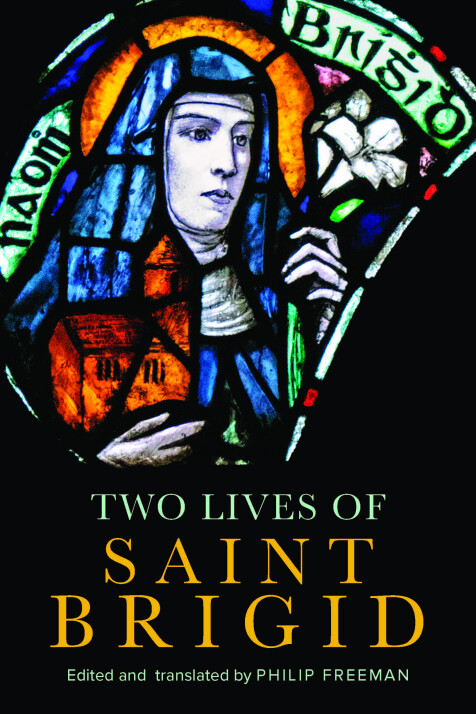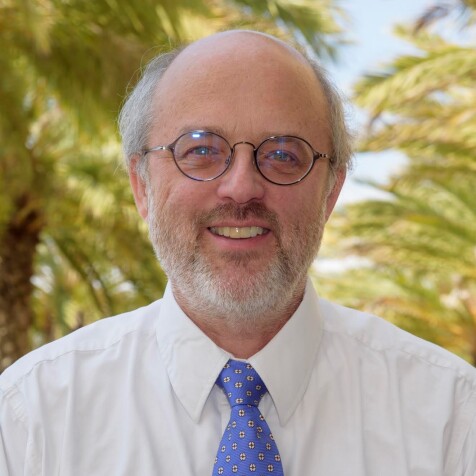Two Lives of Saint Brigid
Philip Freeman
"Readers of History Ireland will be delighted to hear that Philip Freeman's Two Lives of Saint Brigid facilitates direct engagement with the early Christian saint ... this text should be a great resources for future research and study on Brigit ... Commentary throughout the text helpfully notes the various biblical references interspersed throughout the hagiographies, of which there are many." Daragh Fitzgerald, History Ireland, May/June 2024
“Readers will find themselves captivated by the stories themselves … And what terrific tales they are … This collection will inform and delight all readers interested in learning more about the earliest traditions about Brigid of Kildare whose latest miracle has been to give us all an extra day off”. Salvador Ryan, Irish Independent
"These two early lives of Brigid have now been made available in modern English translations by Philip Freeman. Full transcripts of the Latin text of both lives, based on the earliest known complete manuscript versions, are included ... The great merit of Freeman’s pragmatic approach to creating a useable Latin text of these two important sources is its simplicity and thus its accessibility. His modern English translation of each text is noteworthy for its readability, making the book a great access point for non-specialists interested in reading these early documents for themselves ... Given the ongoing revival of pilgrim paths in Ireland, as well as the renewed interest in St Brigid’s Day as a secular holiday, this modern edition and translation of some essential texts is most welcome." Bernadette Cunningham, Search, A Church of Ireland Journal (Summer 2024)
"The contents include both the English and Latin texts of the original as well as a further reading list and a helpful index ... Four Courts Press have produced a quality copy with generously sized print on durable paper giving the regular reader one more reason to hesitate before converting to Kindle versions of the printed word. The author's goal to offer a work for interested readers, students and scholars and as a resource for further research and study has been fully achieved. In addition as Ireland 'rediscovers' Brigid thanks to the newly established public holiday in her name we are fortunate to have such an erudite and enlightening publication to serve as a benchmark for future commentary on the woman who became known throughout Europe as 'the Mary of the Gaels." Intercom, April 2024
“St Brigit is arguably the most famous woman in Irish history ... She is the object of some of the earliest surviving written literature in Ireland, the most famous of which is a Life of Brigit composed by Kildare cleric, Cogitosus, whose account of Brigit’s miracles became the most widely circulated and copied Life of any Irish saint. Cogitosus’s text, and that of an anonymous author, commonly referred to as the Vita Prima, marked the beginning of an impressive Irish literary legacy which went on to include celebrated writers such as Mary Shelley, James Joyce, Seamus Heaney and Sally Rooney. In time for the 1500th anniversary commemorations of Brigit’s supposed death in 524, Philip Freeman, Fletcher Jones Chair of Western Culture at Pepperdine University and prolific translator of classical and early medieval Latin texts, brings these Two Lives of Saint Brigid to a modern audience. Freeman succeeds beautifully in his laudable objective, ‘to offer for the first time translations of both Lives along with the Latin texts for interested readers, students and scholars, with the hope that it will provide a resource for further research and study’ (p. 11). These new readers will surely benefit from Freeman’s accessible style which brings renewed energy to these historical sources ... [This book] is certainly a convenient and welcome ‘one-stop-shop’ for all and an excellent introduction for undergraduates. Freeman’s triumph is in communicating these medieval texts to non-specialist audiences and the general public—an underappreciated skill. Most importantly, Freeman’s lively and engaging translations in Two Lives will surely stimulate much needed further research on these valuable and influential texts.” Niamh Wycherley, Irish Theological Quarterly, February 2025
“Philip Freeman has done a significant service to the study of the early Irish Church by making available these two works in a readily accessible paperback. We are invited to consider, for example, how the tradition in Christianity of baptising pagan customs is reflected in these accounts of the works of Brigid; to investigate the parallels between the accounts of the miracles of Jesus and the miracles attributed to Brigid; and to reflect on the role of Brigid as a female leader with apparent authority over her male contemporaries in the Irish church. Two Lives of Saint Brigid is an important and timely contribution to the wider understanding of her significance.” Gemma Loughran, Familia. Ulster Genealogical Review. No. 40 (2024)


